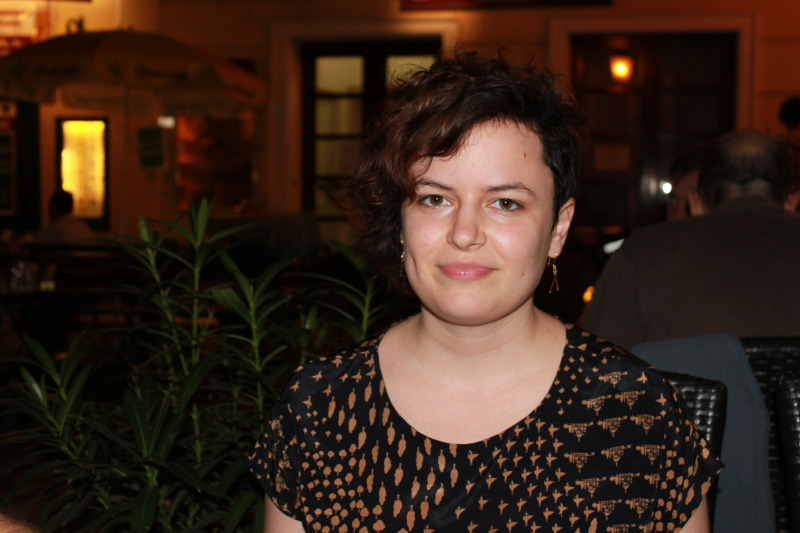
por Profesora Lilla Maria Crisafulli de la Universidad de Bolonia.
Marine, a 4th edition GEMMA student, had decided to present her Master’s Thesis in Bologna and had chosen a decidedly challenging topic for her dissertation, Towards a Politics of Virtuality: Bodies, Space, and Technologies. She was determined to deal with this topic precisely because it was highly theoretical and innovative. She had almost finished writing her thesis when she died, accidentally, one evening at home. She would have discussed her thesis on November 6, 2012, at 16.30.
Marine was French, had a kind smile and was a gentle and reserved young woman. She had come to Bologna to attend her second year of Master Gemma, after having spent the first year in Poland, at the University of Lodz. She was the only child of Pierre and Valerie Moullet. Her parents, strong and dignified despite their infinite grief, told us how strikingly brilliant and precocious Marine had been in her education: she took her A level when she was only 14 years old and her Bachelor degree at 18, she would have concluded her Master before turning 21.
Her university companions Fernanda Cabezas and Wilmarie Rosado feel sad and lonely, they had planned a journey together with Marine to celebrate their graduation. Rita Monticelli and Gilberta Golinelli, her thesis supervisors, are in dismay, and so is Monica Rossetti, her tutor, and Lilla Maria Crisafulli the Gemma Coordinator: we all feel bereaved for her premature departure. We agreed that the best way to remember her was by citing her own words, setting out from a quotation by Luce Irigaray with which Marine opens her dissertation:
“I desire to flower according to my roots and, spiritually, according to my body. I do not want to disguise myself with the body of the other. Morphology means, in my opinion, the forms of the living substance and those that are allowed to them. This is a poetic indication about a practical becoming” (Luce Irigaray)
Marine goes on to interrogate crucial issues of our times:
“in this ‘post-human’ era, what space is left to the flesh? How does perception evolve? A phenomenological approach can be useful here: between the virtual, the hyper-real, the artificial, and the embodied subject who experiences the world. […] The central inquiry of my work would be about the notion of ‘post-human’: should we embrace such a conception of subjectivity? What about the vulnerability of the body? […] Can this imply a change in the symbolic order?”. Starting from a genealogy of the cyborg, mapping relevant feminist figurations, from Irigaray’s Godess to Cixous’ Medusa and Kristeva’s notion of the abject, from Butler’s queer to Bradotti’s cyber-teratology, and the cyborg manifesto of Donna Haraway, Marine’s work investigates how it is possible to challenge the borders between the corporeal and the virtual space. This operation is a forceful goal of feminist theorists. The interconnection between technology and corporeality becomes, in Marine’s research and words, a challenge capable of redefining embodied subjectivity both in the materiality of towns and cities, and the virtuality of the technospace. Thus the body, capable of bringing about new subjectivities, is both material and ‘volatile’, a new re-elaboration of a cyber female flâneur. Marine envisages a new way to reconsider the cyberspace and ‘wandering’ in different spaces. In her words: “ […] many spaces are more open to wanderings. A subject who wants to engage in some sort of cyberflânerie is still able to do so. […] The idea of a person taking the time to explore new territories, new interests, to observe the crowd’s behaviour and reflect upon his or her own position remains an appealing ideal”. Referring to Braidotti, she reminds us: “we live in a world of changes, (which can be scary) that we fail to represent to ourselves. We need new utopias, we need to consider a third way of dealing with technology”.
The memory of Marine and her commitment will continue to inspire us to face these challenges.

